Growing new and beginning farmers
Beginning a career in farming is not simple or straightforward. As well as learning how to care for crops and livestock, farmers need to have solid business acumen, understand complex regulations, and know how to make their practices as environmentally friendly as possible. Based at Alabama A&M University’s Small Farms Research Center, in the US, E’licia L. Chaverest heads up the ‘New and Beginning Farmers Program’, which supports projects that educate and train farmers in how to run an effective and sustainable farming operation.
Talk like a small farms outreach provider
Biodiversity — the variety and richness of organisms found in an area
Capital — a person’s financial assets, including money and property
Credit — in finance, the ability to borrow money
Entrepreneurship — taking on financial risks to start and grow a novel and innovative business
Financial literacy — the ability to effectively understand and manage finances
Heir property — family-owned land with unresolved estate issues, usually when the original owner dies without leaving a will
Mentoring — advising or training a less experienced person
Minority — a relatively small group of people with particular characteristics (e.g., ethnicity), often facing discrimination
Sustainable — maintainable far into the future by avoiding depletion or contamination of natural resources
Underserved — not provided with sufficient help or services
If you are interested in running a farm, where do you begin? Many farmers find starting their careers a daunting process, especially if they are from disadvantaged backgrounds or lack a network for support or advice. To counter this, the US Department of Agriculture (USDA) runs the Beginning Farmer and Rancher Development Program (BFRDP), which aims to help new and beginning farmers by funding programmes or services that support them.
One such programme is run by Alabama A&M University’s Small Farms Research Center (AAMU-SFRC). “Since the COVID-19 pandemic, there has been a sharp increase in the number of minority farmers entering the agricultural industry,” says E’licia L. Chaverest, Assistant Director of the AAMU-SFRC. “To help this process, we run a programme designed to cater to their specific needs.” The programme targets military veterans, who are often in need of a new career after leaving the armed forces, as well as young people who are seeking a career in agriculture, due to having inherited agricultural land or having a passion for the sector.
Education and empowerment
The programme, ‘Developing Capacity for Veterans and Socially Disadvantaged Beginning Farmers in Black Belt Alabama’, works to support farmers through a range of methods, including farm planning, farmer-to-farmer mentoring, experimental learning through hands-on demonstrations, and research based educational courses across a wide range of topics.
Alabama’s Black Belt gets its name from the area’s rich, black soil. Writing in the 1930s, American sociologist Arthur Raper described it as the historical home of “the richest soil and the poorest people” in the US, with nine out of Alabama’s ten poorest counties being found within the belt. Almost 100 years later, Raper’s description is still valid today. The region focuses on agriculture and has a low population density, high unemployment and insufficient access to medical care and education. The AAMU-SFRC is working on improving this situation by giving upcoming farmers a helping hand in running profitable and sustainable agribusinesses.
“For many new and beginning farmers, the main challenges they face are access to resources and technical assistance,” says E’licia. “They may be unaware about the USDA programmes and services that are available, as well as agricultural institutions such as AAMU-SFRC.” The centre’s programme focuses on supporting new farmers through education and empowerment. “We provide comprehensive programmes on topics such as business structure, financial literacy, risk management strategies, diversification, food safety, and marketing,” says E’licia. “These programmes include workshops, seminars, certification courses and case studies to build this knowledge.”
Money and law
Legal and financial matters are notoriously complex, especially when dealing with large amounts of land and capital, as is typically the case with farms. “Many historically underserved farmers are facing heir property issues, meaning they encounter legal problems in proving ownership of their land,” says E’licia. “Racial barriers and financial literacy also pose big challenges.”
AAMU-SFRC provides educational programmes to tackle this. “We have courses on estate planning, heir property and land access,” says E’licia. “Other courses educate farmers about financial credit, record keeping and managing both business and personal finances,” says E’licia. The AAMU-SFRC also provides one-on-one consultations and specialist appointments to help farmers meet their specific needs.
Entrepreneurship and leadership
These days, it is not enough for farmers to know how to farm; they also need to be business-savvy. “In the digital era, entrepreneurial and leadership skills are so important,” says E’licia. “New farmers will be required to be innovative, creative and visionary to operate their farms. As leaders, they will need skills such as strategic development, planning and delivery, and management of employees.”
In the age of industrialised farming, it can be difficult for smaller farms to keep up – but they remain highly valuable. Smaller farms tend to be more sustainable and friendlier to biodiversity, which is critical for ensuring the future of food supplies. Smaller farms also help build local resilience; if food supply chains are disrupted, they can help provide for local communities. This highlights the need for the farmers who run smaller farms to understand the business landscape and compete against the agricultural giants.
Farmer-to-farmer mentoring can be a powerful way of facilitating this process. Instead of relying on traditional ‘classroom’ settings, the programme connects beginning farmers with experienced farmers who can pass on their invaluable knowledge and expertise gained from years of farming. “Farmer-to-farmer mentoring is critical for new and beginning farmers,” says E’licia. “It gives them the opportunity to shadow traditional farmers and learn through hands-on experience.” The programme also offers apprenticeships and internships, helping prospective farmers to build their understanding before getting fully involved in farming as a career.
A legacy of success
The AAMU-SFRC has a substantial history of successes. “Over 28 years of operation, AAMU-SFRC has reached nearly 20,000 farmers and landowners, including the education and empowerment of over 12,000 who are new or beginning a farming career,” says E’licia. “Throughout that time, we have learnt about a number of approaches that are keys to success.” For instance, meeting the farmer in the field – taking the classroom to them – can be vital for ensuring that their specific needs are being addressed. The value of networks is also powerful, helping farmers to access people and opportunities that otherwise may have been inaccessible.
All this has only been possible due to a passionate and driven team at the AAMU-SFRC. “Without my team, we would not have been able to accomplish what we have over so many years,” says E’licia. “I am proud to acknowledge my coworkers and the essential roles they all play in our projects.”
The AAMU-SFRC Team
Dr Duncan M. Chembezi, Director
E’licia L. Chaverest, M.S., Assistant Director
Aminat Amunigun, Graduate Student
Oppia Burke, Program Assistant
Shuniya Hutton, Program Assistant
Virgina Ward, Program Assistant
Reference
https://doi.org/10.33424/FUTURUM444
Ms E’licia Chaverest with a veteran farmer
© Dr Duncan Chembezi
 E’licia L. Chaverest
E’licia L. Chaverest
Assistant Director, Small Farms Research Center, Alabama A&M University, USA
Fields of research: Small farms research, agriculture economy, plant and soil science
Research project: Providing new and beginning farmers in Alabama with education, support, resources and training
Funder: US Department of Agriculture (USDA) – National Institute of Food and Agriculture (NIFA)
About farming and farming research
Farming has formed the backbone of civilisation for thousands of years and continues to be vital for a well-fed and healthy society today. However, farming practices are constantly changing, adapting to technological and societal progression, and now increasingly embracing a deeper knowledge of sustainability. This makes farming – and research into how to make farming a more efficient, resilient and environmentally friendly process – an exciting career choice. E’licia explains more.
“The study of farming can be a hugely rewarding career. It lets you enjoy the great outdoors, enjoy high-quality food, and learn how the food we consume is grown. There is a strong sense of accomplishment in helping farmers and landowners build their community.
“Careers are shifting towards the advance of sustainability practices and embracing technology. Within farming research, there are more and more openings in data and analytics, food safety, natural resources, environmental sciences and public policy. Farming has a huge role to play in addressing climate change, and this will undoubtedly shape agriculture for years to come.”
Pathway from school to farming and farming research
At high school and post-16, E’licia recommends subjects such as biology, business and economics to gain a grounding in the fundamentals of farming.
E’licia says that college and university courses in food science, animal science, economics, plant science, social science and public policy are all beneficial for a career in the farming sector.
Explore careers in farming and farming research
• E’licia says, “Starting a career in farming or farming research can seem intimidating, but there are resources out there to help. For those interested in starting your own farm in the US, I recommend connecting with your local USDA Service Centre which can offer support and pair you with an experienced mentor.”
• “If you are interested in a career in farming research,” advises E’licia, “visit a nearby university or college to learn about the youth programmes they offer. For instance, the AAMU-SFRC is collaborating with Alabama Cooperative Extension System and Climate Initiative to develop a programme focusing on how agriculture can encourage, and benefit from, biodiversity.”
• Future Business Leaders of America High School helps high school students prepare for careers in business, through competitions, educational programmes and leadership development. Such skills are highly useful for careers in farming.
• Minorities in Agriculture, Natural Resources and Related Sciences (MANRRS) promotes academic and professional advancement for minorities in agriculture and related fields. Junior MANRRS membership grants opportunities to develop academic and leadership skills.
According to salary.com, the average salary for a farmer in the US is around $46,000.
Meet E’licia
I thrive on being able to make a difference to farmers’ livelihoods. Farmers motivate me to learn various aspects of agriculture so I can provide assistance on various levels. When you love what you do, there are no obstacles too large to assist the people you serve.
I’ve worked at the same university for 20 years now! Initially, I wanted to work for the USDA in Washington D.C., but over the years I learnt that I’m more valuable working directly with farmers. I’ve found unexpected joy in being a productive outreach provider, helping farmers with every aspect of growing their farm operation. Recently, I was proud to be selected as a member of the USDA New and Beginning Farmers Advisory Council.
Having a good work-life balance helps me overcome obstacles. I have a strong network of friends and professionals to advise me, and having a life outside of work helps me keep the perspective of not taking everything too seriously. My prayer life also gives me a sense of sanity.
My colleagues and I aim to grow, inspire and mentor the next generation of farmers. We want all ages to learn more about agriculture and to connect with our food system as farmers, gardeners or community leaders – to be curious about sustainable agriculture practices and where the food system can go next.
E’licia’s top tip
There is a very broad range of career paths within farming, so keep an open mind to opportunities. Try different areas of agriculture, such as getting work experience with local government, in universities or in agricultural communities.
Do you have a question for E’licia?
Write it in the comments box below and E’licia will get back to you. (Remember, researchers are very busy people, so you may have to wait a few days.)

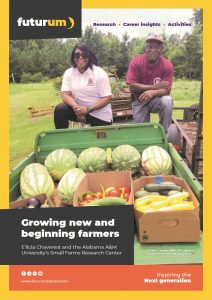
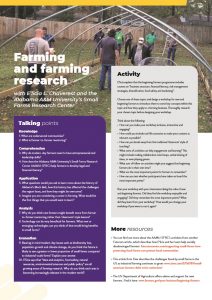
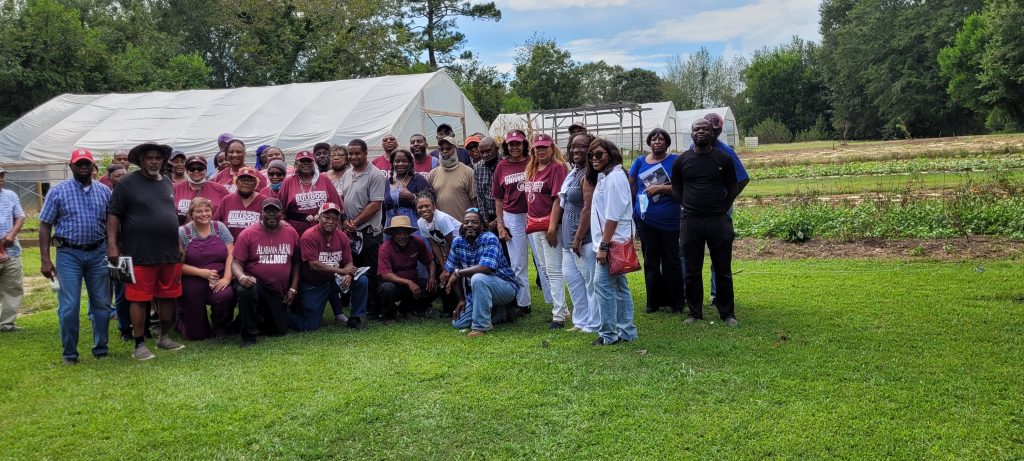
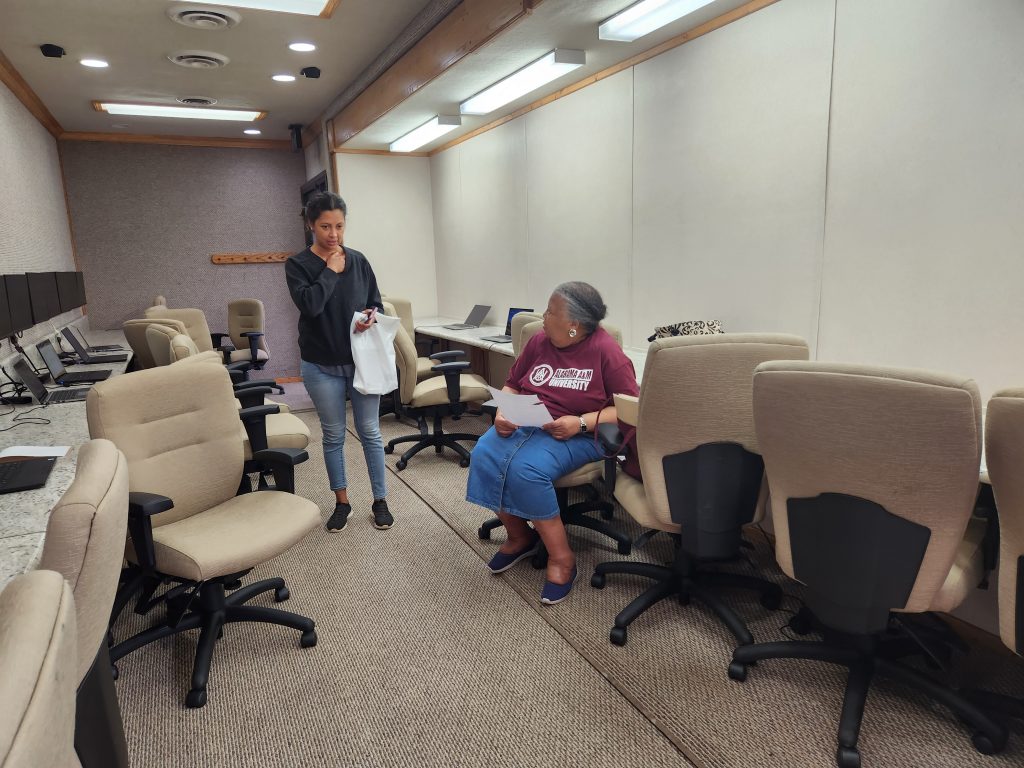
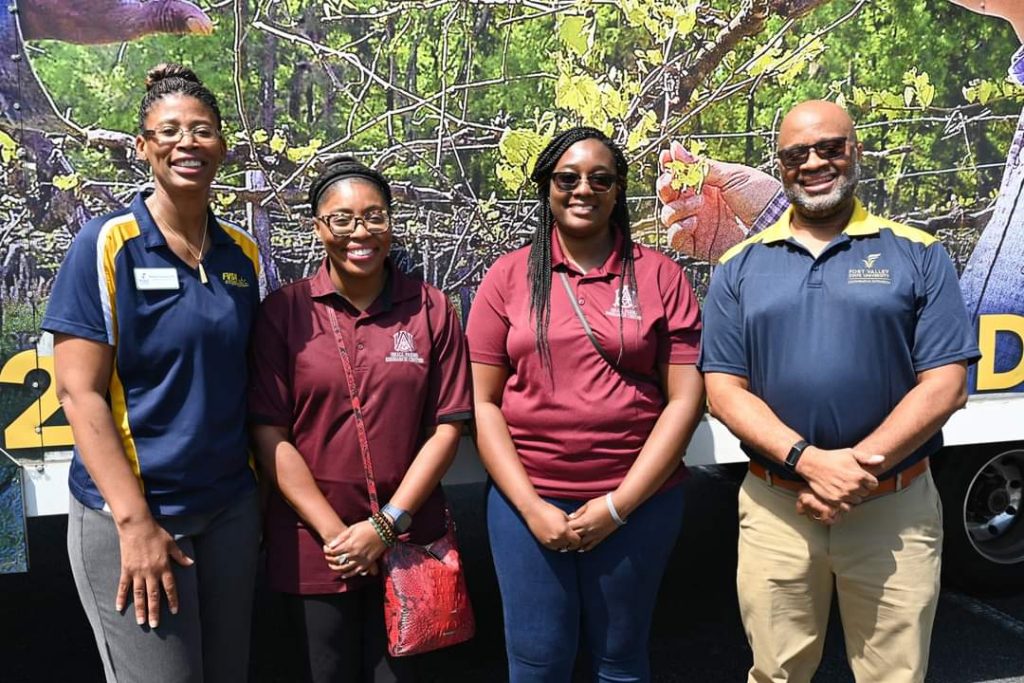
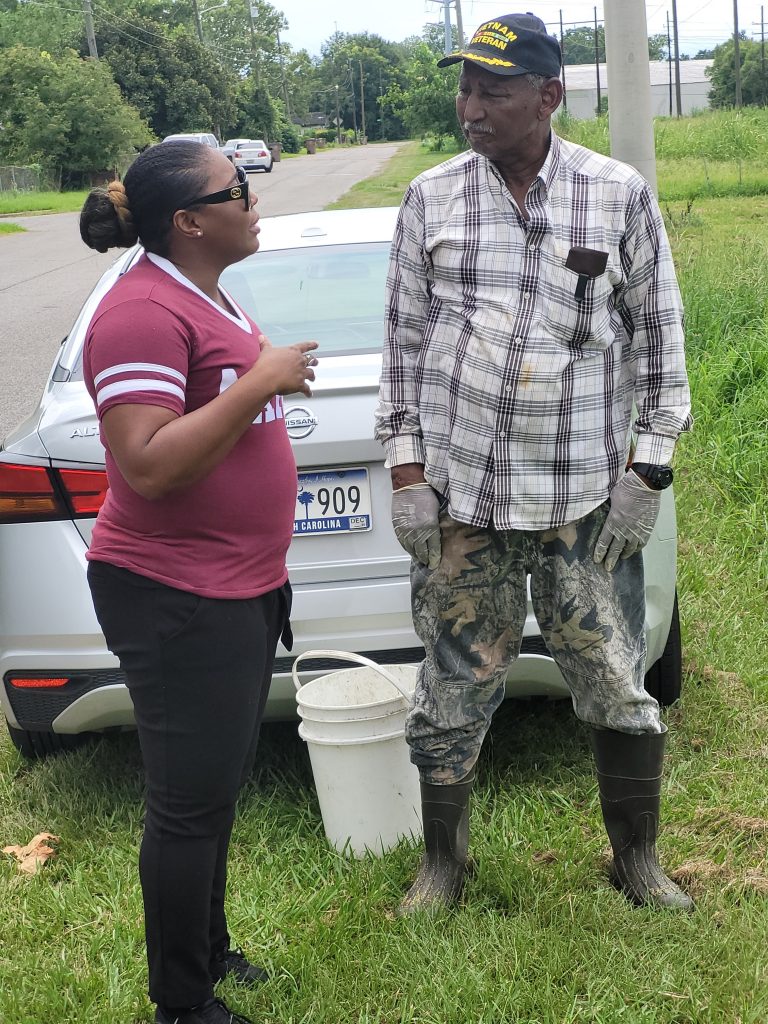
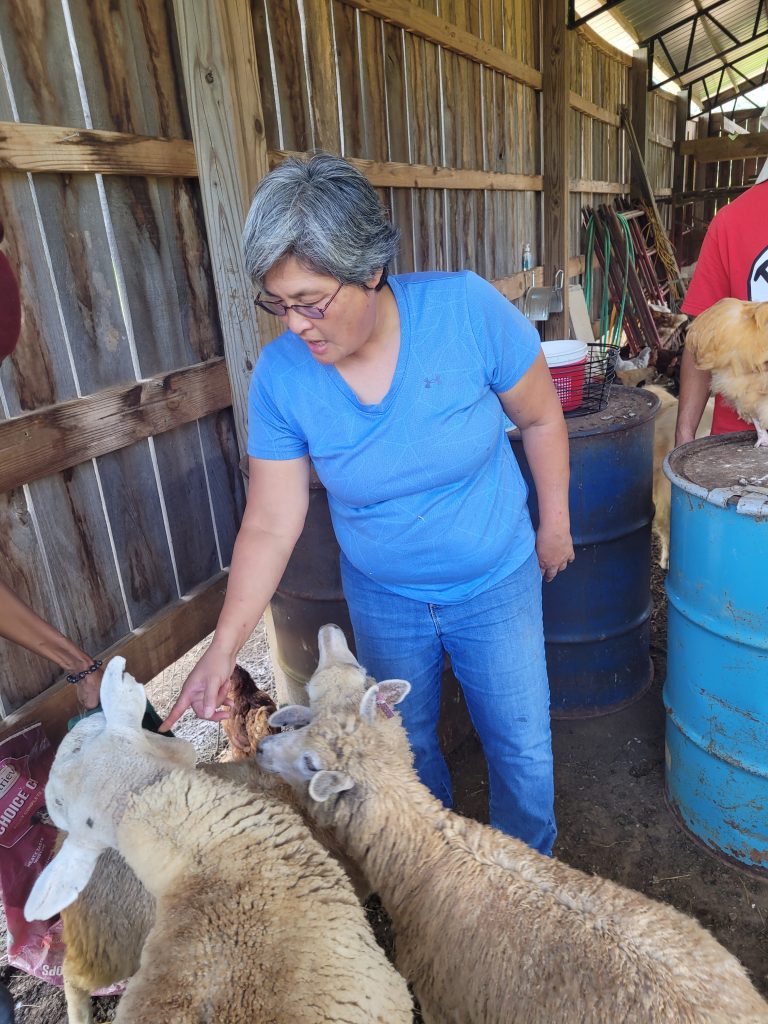
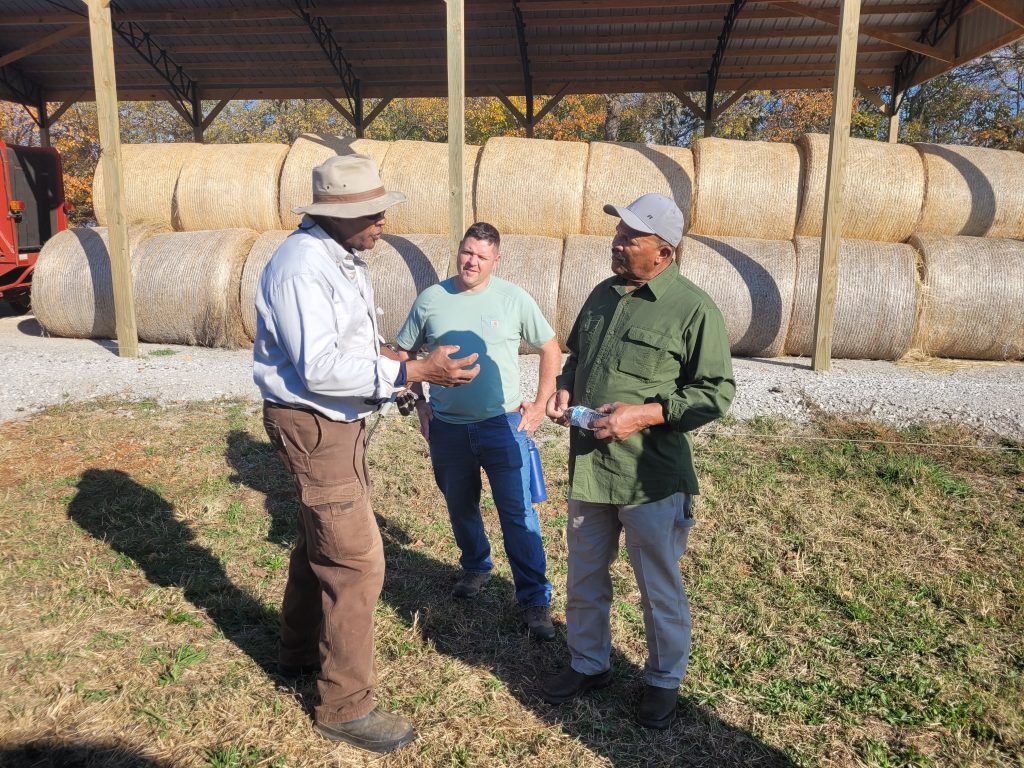
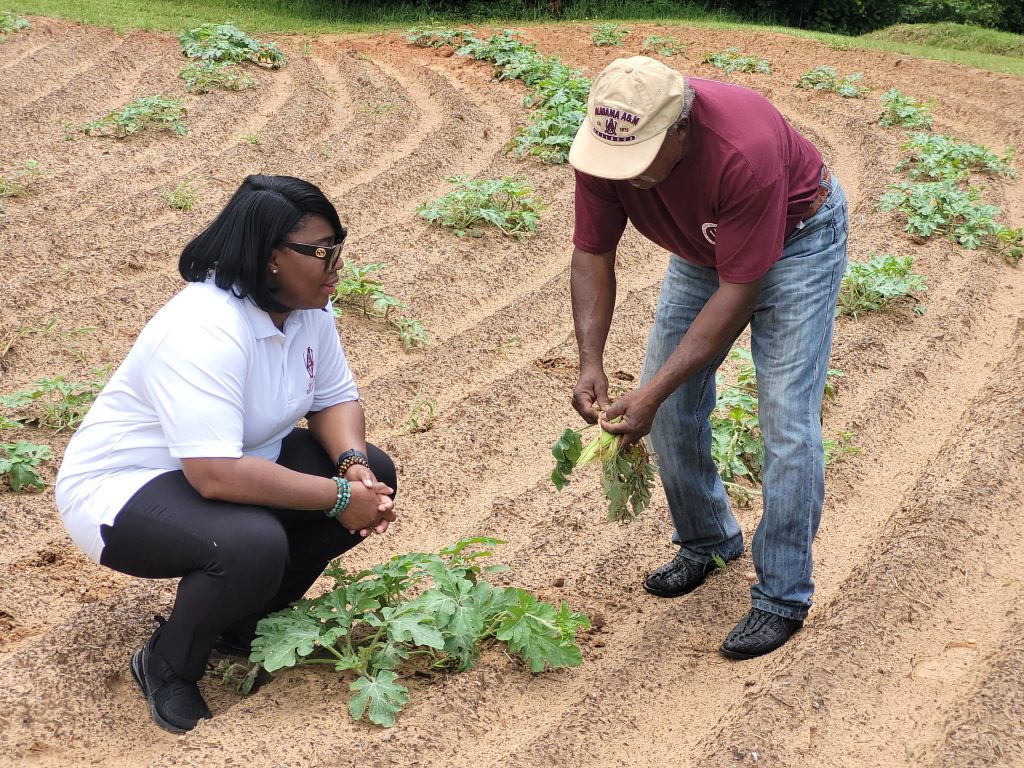
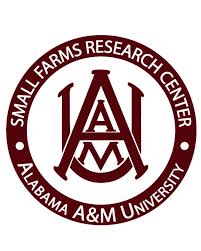
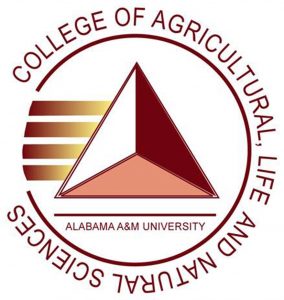


My name is Joshua and I will be doing a research article for science class on Bringing Beekeeping and Berry Farming to Alberta. I think it will be fun to learn about.
Hi Joshua,
Best of luck with your research article, we hope our resource prove useful for you.
Kind regards,
Futurum Team